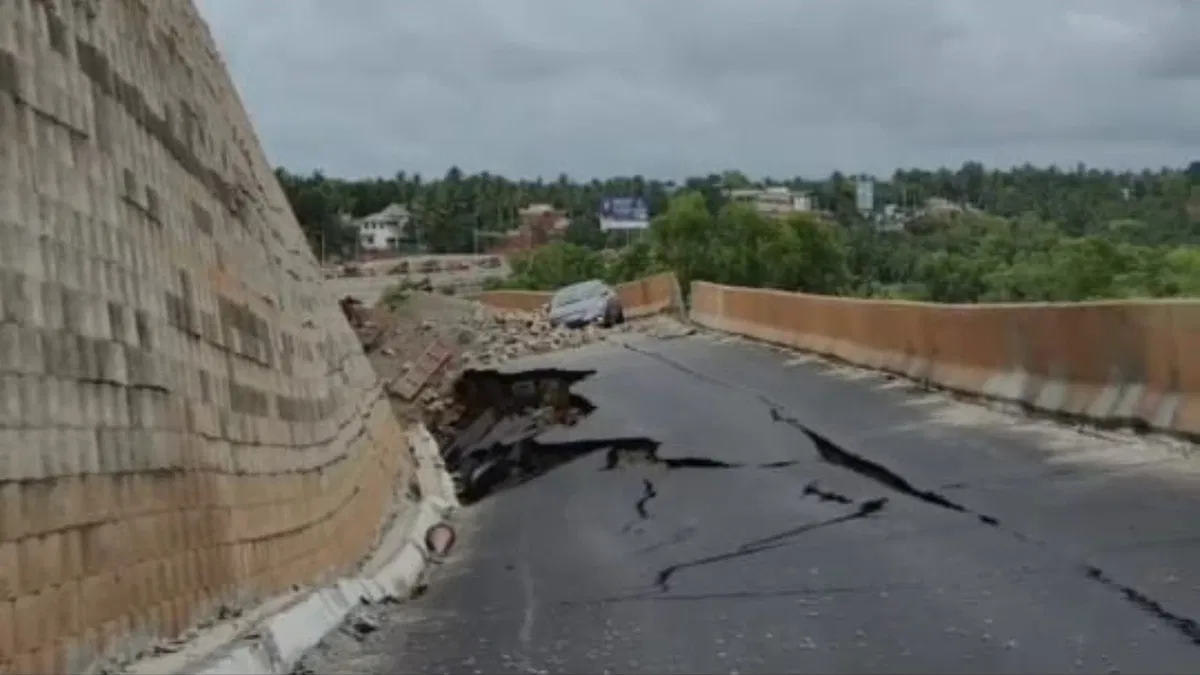The National Highways Authority of India (NHAI) has confirmed that the complete overhaul of National Highway 66 (NH66) in Kerala will not meet its ambitious December completion deadline.
This significant setback is attributed to widespread unscientific construction practices and alarming instances of road collapse, particularly in the northern districts. Despite four additional reaches being targeted for completion by May, many of these sections, which were over 90 percent finished, succumbed to heavy rains, necessitating extensive reconstruction and raising serious questions about quality control in major infrastructure projects. This development poses a considerable challenge to the state’s connectivity and economic fluidity, directly impacting the vision of robust and resilient urban and regional infrastructure. The recent collapse of the Malappuram Kooriyad section, part of the Ramanattukara-Valanchery reach, exemplifies the critical issues at hand. This particular segment, which was 95 percent complete and slated for inauguration by the end of this month or early next month, unexpectedly caved in. This incident means that several kilometres of both the main road and service road will require complete rebuilding, an arduous task now further complicated by the imminent arrival of the monsoon season. The reconstruction efforts are anticipated to face significant delays, as comprehensive soil testing will be necessary before any new work can commence, adding layers of complexity and cost to an already troubled project.
Adding to the woes, the construction of crucial flyovers and bridges in the Mukkola-Kazhakuttam and Mukkola-Karode reaches, which were part of the first phase of the project and already declared complete, are themselves not even halfway finished. This suggests a piecemeal approach to development where components of a larger infrastructure project are not synchronised, leading to bottlenecks and incomplete functionality. Such disjointed progress not only frustrates commuters but also raises concerns about the long-term structural integrity and seamless operation of the entire highway corridor, a vital artery for Kerala’s socio-economic movement. The list of “completed” reaches, such as Pallikkara-Nileshwaram, Thalassery-Mahé, and Kazhakoottam Elevated Highway, starkly contrasts with the recent failures, highlighting a potential discrepancy between declared progress and ground reality. Furthermore, sections like Thalappadi-Chengala and Kozhikode Bypass, both reported to be 90 percent complete, along with Ramanattukara-Valanchery and Valanchery-Kappirikkad at 95 percent and 96 percent respectively, were among those that experienced significant collapses. This raises pertinent questions regarding the efficacy of oversight mechanisms and the quality of materials and methods employed by contractors.
The current state of construction progress on other reaches, with completion percentages ranging from 38 percent for Thuravoor-Paravoor to 78 percent for Nileshwaram-Thaliparamba, further underscores the extensive work still required. The imperative to “demolish the entire road and build it properly” in affected areas, as suggested by experts, indicates the severity of the structural flaws. This drastic measure, if widely adopted, would not only incur immense additional costs but also extend the project timeline considerably, exacerbating travel woes for residents and impeding economic activities reliant on this crucial transport corridor. The cumulative impact of these delays and structural failures extends beyond mere inconvenience. It imposes significant economic burdens through increased transportation costs, disrupts supply chains, and negatively affects local businesses along the highway. More critically, the compromised safety of these roads presents a tangible risk to human lives, an unacceptable outcome for any public infrastructure project. The situation demands an immediate and thorough investigation into the alleged unscientific construction practices, coupled with a robust accountability framework for all stakeholders involved.
The long-term vision of a zero-net-carbon, eco-friendly, and equitable urban fabric is fundamentally undermined when foundational infrastructure projects fail to meet basic quality and safety standards, impacting the trust of the public in large-scale development initiatives.
Also read : Greater Noida to Host ₹5000 Crore Multi-Modal Logistics Park Near Jewar Airport


